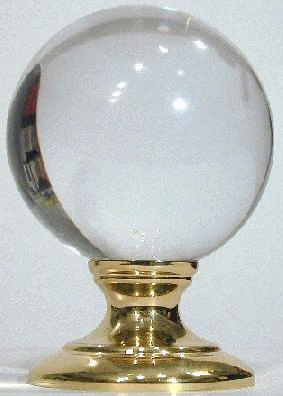 One of the most critical skills an innovator needs is the ability to predict, to have good hunches, good intuitions, to have a sense of what will work and what won’t, or at least what’s worth trying and what’s not. We tend to focus on having good ideas, assuming that idea generation is the critical input, but having good ideas is not all that helpful unless we can distinguish the good ideas from the not so good ones once we have them. Selecting ideas for implementation is an inherently predictive exercise. We’re trying to foresee what will happen as a result of pursuing one idea as opposed to another.
One of the most critical skills an innovator needs is the ability to predict, to have good hunches, good intuitions, to have a sense of what will work and what won’t, or at least what’s worth trying and what’s not. We tend to focus on having good ideas, assuming that idea generation is the critical input, but having good ideas is not all that helpful unless we can distinguish the good ideas from the not so good ones once we have them. Selecting ideas for implementation is an inherently predictive exercise. We’re trying to foresee what will happen as a result of pursuing one idea as opposed to another.
Similarly, organizations have long realized that to improve their capacity to innovate they need to become good at identifying the most promising possibilities. They must distinguish them from the less promising…as early in the innovation as process as possible. That way the available resources can be focused where they will do the most good, with a minimum of wasted time and expense.
The Myth of Expertise
One way to do this is to go to the experts. Find someone with related subject expertise and ask them to evaluate the options. As logical as this sounds (and as frequently as this happens formally and informally) it’s a particularly bad approach for two reasons. For one, expertise is acquired knowledge about how the world works so far. It’s a collection of facts and attitudes and beliefs that are inherently rooted in the status quo. Experts are often among the least willing and able to question those prior assumptions in order to actively consider new possibilities.
I’m not suggesting that experts have nothing to contribute. They can often save us from repeating previous mistakes. They may draw on their knowledge to offer possibilities and refinements. But that’s different from knowing what will happen when we try something new, something that stretches the boundaries of that expertise. (And if we’re not stretching those boundaries, it’s probably not something very innovative.)
The second reason this is a bad idea is because most of us (including the experts themselves) think that experts are good at predicting the future in their subject area. Yet, researchers have found that the experts are no better on average at predicting future events than non-experts, across a wide range of fields that include, business, economics, politics, finance and technology. Experts sometimes make accurate predictions, just as non-experts sometimes do. But the experts also get it wrong, and just as often. So, it’s hard to know when we can count on someone’s expertise and when we can’t.
This second reason is a little frightening, partly because researchers also found that the experts have significantly higher levels of confidence in their predictions than non-experts. So when it comes to predicting the future, the experts are no better than the rest of us—but they think they are, and we think they are. In other words, the experts—despite their expertise—don’t always know what they don’t know…and are overconfident about it. That’s a recipe for some lousy decision making.
There are ways to overcome this problem, by for example tapping into the wisdom of crowds, something our Research has found can be quite powerful. These techniques that gather a diversity of perspectives and opinions can be remarkably effective at screening out much of the bias that so often hampers good decision-making.
When it comes to innovation, making good predictions isn’t about trying to discern where the world is headed as much as where we might take the world. It’s an imaginative process (often just as imaginative as coming up with ideas in the first place). It may require mentally working through alternative scenarios, or designing thoughtful ways to explore and experiment with new ideas. Innovation is not about predicting the future we’re expecting but rather achieving the future we want to create.
Download the White Paper, Predictive Decision Making, The Ultimate Convergence Tool.

Leave A Comment